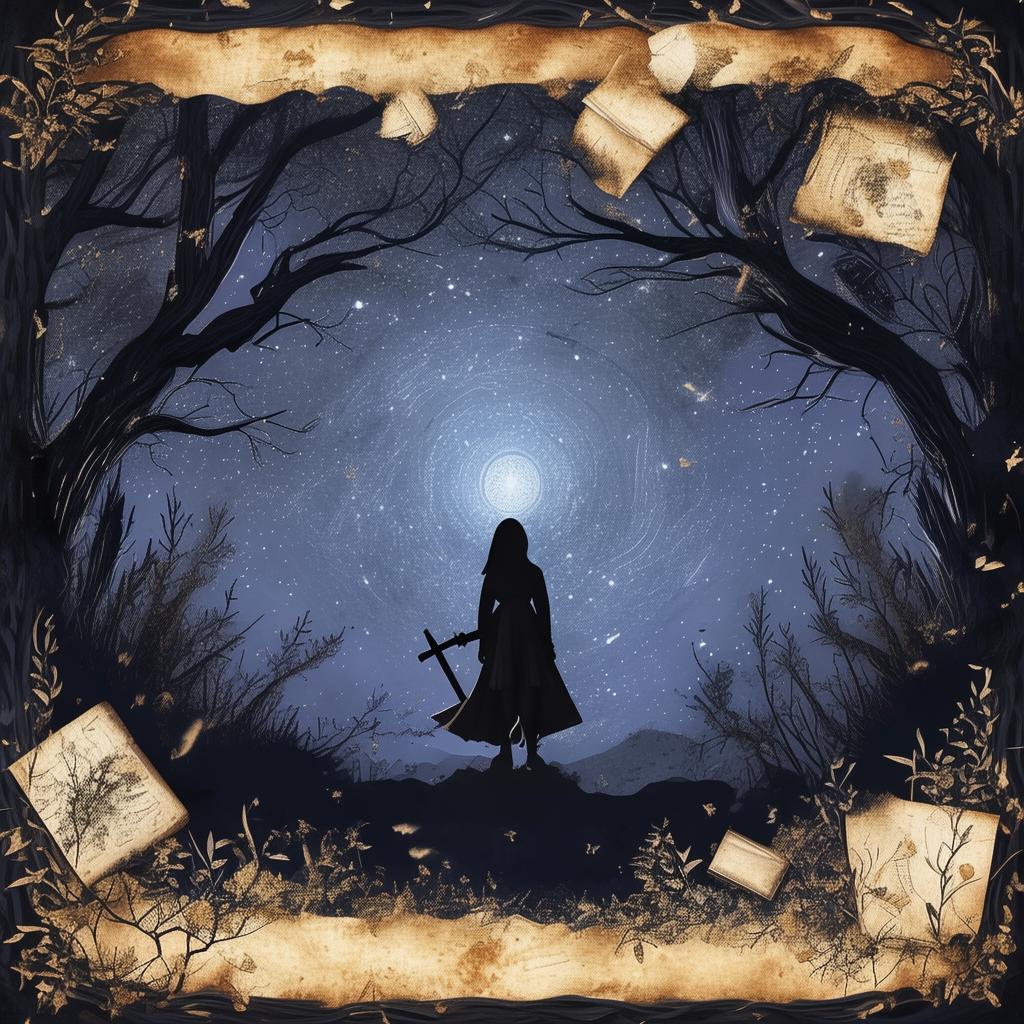The Unseen Symphony: A Poet's Redemption
In the heart of an old, forgotten library, where the shelves groaned with the weight of centuries, there lay a book bound in leather and ink—a book that whispered tales of the departed, of souls that lingered on the cusp of the beyond. It was a book that no one dared to open, a book that held the secrets of the dead poets, the ones who had found their voices in life but were now forever silenced by the fates.
Evelyn Harper, a young and ambitious writer, stumbled upon the library one rainy afternoon. She had been researching her next novel, a story that was to be her masterpiece. The library had been recommended by an old friend, a critic who had once told her that the best stories were found in the forgotten corners of the world.
As she wandered the aisles, the air grew thick with the scent of aged paper and the distant echo of whispers. Her fingers brushed against the spines of ancient tomes, each one promising a story, but it was the book bound in leather that called to her. There was something about it, a sense of urgency, as if it were trying to communicate with her.
Ignoring the warning from the librarian, Evelyn opened the book. The pages were filled with the works of poets long gone, their words leaping off the page as if they were alive. As she read, she felt a strange sensation, as if the poets were reaching out to her, their spirits trapped within the words.
One particular poem caught her eye:
In the realm where shadows dance,

I pen my tales in vain.
My voice echoes through the night,
A ghostly symphony remains.
Evelyn felt a chill run down her spine. The poem spoke of a supernatural showdown, a battle between the living and the dead. She was intrigued, yet terrified. The librarian had warned her of the book's power, but Evelyn couldn't resist the pull of the unknown.
Days turned into weeks as Evelyn became consumed by her research. She visited graveyards, seeking the spirits of the poets, and she began to experience strange dreams, the poets themselves speaking to her in her sleep. It wasn't long before she realized that the showdown was not just a story; it was happening now, and she was the key to unlocking the poets' redemption.
One night, as she sat at her desk, the poets' spirits surrounded her. They spoke of a deal, a trade of her soul for their freedom. Evelyn was torn. She had always believed in the power of words, in the healing they could bring, but the thought of trading her own soul for their release was monstrous.
"I can't do it," she whispered, her voice trembling. "I can't give up my life for yours."
The poets' spirits grew angry, their voices a cacophony of sorrow and frustration. Evelyn knew she had to find another way. She turned to the book, searching for answers, and found a passage that spoke of a ritual, a way to bind the poets to the living world.
The ritual was complex, requiring a sacrifice, a piece of Evelyn's own soul. She knew she couldn't do it alone. She needed help, and she turned to the one person who had always believed in her—the librarian.
The librarian, an enigmatic figure known only as Mr. Penwright, revealed that he was once a poet himself, one who had been trapped in this world by his own pride. He had been waiting for someone like Evelyn to come along, someone who could break the cycle and free the poets.
Together, they performed the ritual, Evelyn offering a part of herself, her love for the written word, her passion for life. As the ritual concluded, the poets' spirits were released, their voices a symphony of relief and gratitude.
But the poets were not the only ones freed. Mr. Penwright, too, was returned to the world of the living, his spirit freed from the confines of the book. Evelyn, however, was left with a piece of the poets' souls, a bond that would forever link her to the dead.
In the aftermath of the showdown, Evelyn's life changed. She found that her writing had become more powerful, more resonant. Her next novel, inspired by her experiences, became a bestseller, a tale of redemption and the power of love.
But Evelyn knew that her journey was far from over. She had opened the book, and the poets had found their voices once more. She was now a guardian of their stories, a bridge between the living and the dead. And as she continued to write, she knew that her soul would forever be entwined with the poets, their symphony an eternal part of her being.
✨ Original Statement ✨
All articles published on this website (including but not limited to text, images, videos, and other content) are original or authorized for reposting and are protected by relevant laws. Without the explicit written permission of this website, no individual or organization may copy, modify, repost, or use the content for commercial purposes.
If you need to quote or cooperate, please contact this site for authorization. We reserve the right to pursue legal responsibility for any unauthorized use.
Hereby declared.









